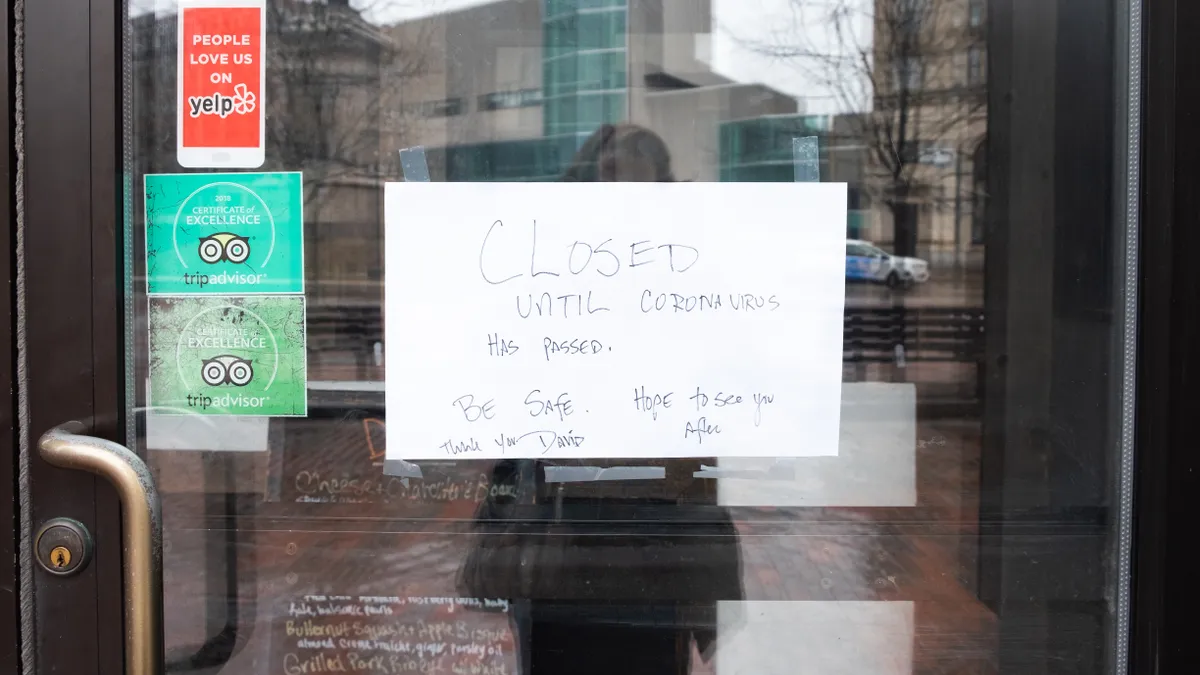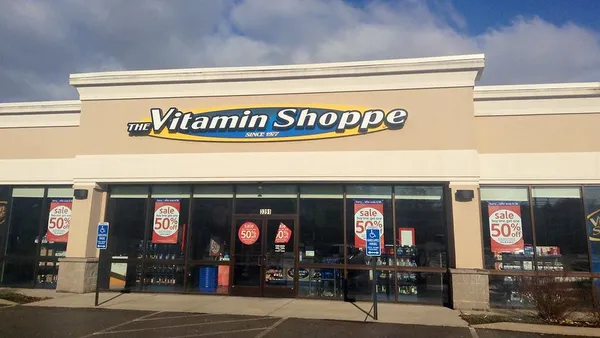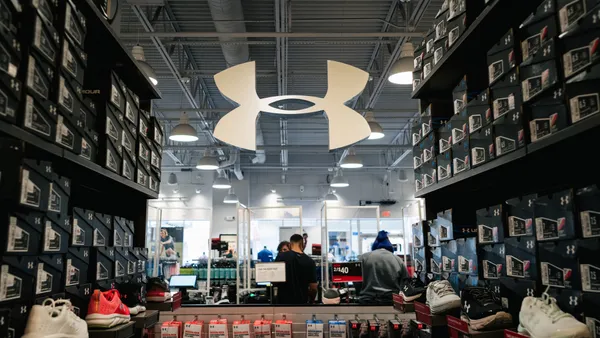Dive Brief:
- The National Retail Federation warned that disruption from the COVID-19 pandemic hasn't ended for small retailers, whose owners are "increasingly pessimistic."
- "The coronavirus continues as a shock to America's small employers," NRF Chief Economist Jack Kleinhenz said in a press release. "Small businesses are the backbone of American ingenuity and impact local economies in cities and towns across the country, but responses to recent surveys highlight the fragility of many small business enterprises and the importance of the need for well-tailored economic policy."
- The trade association called for continued economic stimulus measures to help small businesses suffering from the pandemic fallout.
Dive Insight:
Even by mid-August, when restrictions on businesses that could open had largely eased, most small businesses reported that the pandemic still is having a moderate to large negative effect on their businesses, according to U.S. Census data.
That serves as a reminder that the struggles for retailers, large and small, go well beyond whether they can open their doors are not. Uncertainty remains as consumer behavior has gone through radical shifts (responding to both the pandemic and the economy). Moreover, operating while the coronavirus continues to spread is complicated, costly and bound by various regional restrictions.
The Census data shows small businesses have felt the impact in employment, cash flows and operating difficulties, among other challenges. As Kleinhenz also noted, small business optimism about business conditions over the next half year also fell in July after ticking up from April, according to the National Federation of Independent Business.
Small retailers around the country had to scramble in the spring to figure out how to do things like sell and market online when their stores were closed in response to COVID-19. Lack of scale and resources also made it all the more difficult to weather the closure period.
As one small business owner told Retail Dive in March: "Just understand that everybody, especially one- or two-person operations, we all live on incredibly small margins. Their income is over for now, but they're still paying bills. I bought stuff on my credit card thinking we would be selling into the summer. And we're coming out of our slowest time of the year after the holiday."
Reopening at least made it possible for revenue to come back in. But retailers also reopened into a more complicated and more uncertain economic and operating environment. Adding to the uncertainty is the expiration of federal stimulus measures, which included weekly $600 unemployment benefits that helped sustain sales in many areas of the retail market over the summer, as well as help for small business.
Given the number of people small retailers and other businesses employ, they are not only dependent on the recovery of sales but also a major contributor to the overall economic recovery. "Just as a physician checks a patient's pulse to measure the rhythm and strength of the heartbeat, small business is an important indicator of the comparative health of the local and national economies," Kleinhenz said.













